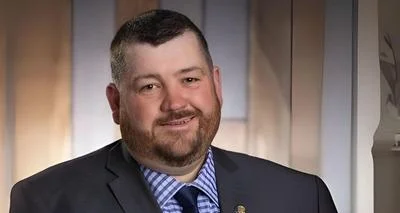Dean Rieck, Executive Director at Buckeye Firearms Association | LinkedIn
Dean Rieck, Executive Director at Buckeye Firearms Association | LinkedIn
The Supreme Court recently focused on oral arguments in National Rifle Association of America v. Vullo, No. 22-842, a case concerning government officials using their regulatory authority for a "blacklisting campaign" against entities like the NRA. The NRA emphasized that individuals should not have firearms if they are deemed dangerous, stating that "any suggestion otherwise is offensive and wrong."
Regarding the "No Fly List," which is central to the "No Fly, No Buy" gun control proposal, the NRA highlighted concerns about the lack of transparency and due process. They emphasized that individuals mistakenly ending up on the list face challenges in being removed and regaining their rights.
The case of Yonas Fikre, who was wrongfully placed on the "No Fly List," exemplifies the potential consequences of being on such a list. Fikre's ordeal included being imprisoned and tortured after refusing to act as an FBI informant. Despite being eventually removed from the list, Fikre faced ongoing challenges and litigation due to the lack of clarity surrounding his initial listing.
In a unanimous decision, the Supreme Court allowed Fikre's case to proceed, emphasizing that the government's declaration of not relisting him did not guarantee protection for future actions. The ruling highlighted the importance of ensuring due process and preventing the unilateral rescinding of citizens' constitutional rights by the executive branch.
Retired SCOTUS justice expressed concerns about the decision, suggesting that Fikre's case raises questions about national security reasons, faulty intelligence, or potential coercion to become an informant. The Court acknowledged the need for further examination to determine the lawfulness of the government's actions in listing individuals on the "No Fly List."
The ruling serves as a reminder of the significance of upholding due process and constitutional rights, particularly when it comes to restricting individuals' access to rights like the Second Amendment. The decision underscores the need for careful consideration and scrutiny when it comes to government actions that impact individuals' fundamental freedoms.
In conclusion, the Supreme Court's examination of government "blacklists" highlights the complexities and implications of regulatory actions that can affect individuals' rights and liberties. The case of Yonas Fikre serves as a poignant example of the challenges individuals face when caught in the web of government lists and the importance of ensuring transparency and due process in such matters.






 Alerts Sign-up
Alerts Sign-up